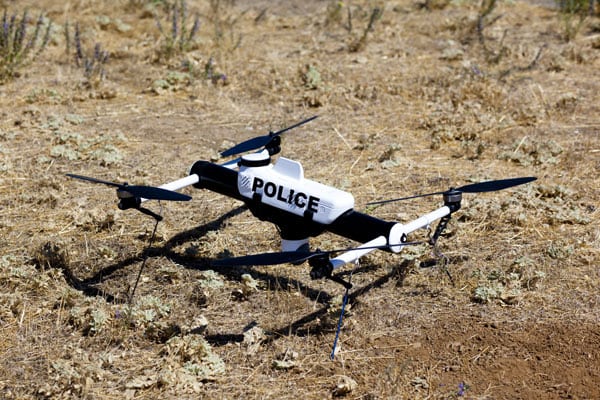The Senate Judiciary Committee hearing on Wednesday focused on the regulatory oversight of state and local unmanned aircraft programs, with senators expressing concerns over privacy issues.

(AeroVironment’s Qube UAS, used for public safety. Photo, courtesy of AeroVironment.)
FAA has predicted that there could be as many as 30,000 unmanned aircraft systems (UAS) flying in the national airspace system (NAS) by 2020, following the agency’s plan to grant licenses to private groups for domestic use of the technology by 2015.
Domestic UAS use is currently limited to FAA-approved permits, reserved mostly for critical aerial surveillance and research missions, and law enforcement agencies.
“My concerns about the domestic use of drones extend beyond government and law enforcement. Before we allow widespread commercial use of drones in the domestic airspace, we need to carefully consider the impact on the privacy rights of Americans,” said Sen. Patrick Leahy (D-Vt.), chairman of the Senate Judiciary Committee.
Leahy said he did not want the committee to have a “short-sighted view” on the issue, because of all of the potential benefits that unmanned aircraft pose for the American economy.
Witnesses at the hearing discussed the challenge of determining a standard for regulating the process of collecting data via unmanned aircraft by law enforcement agencies. Some state and local agencies are currently using UAS for border surveillance, mapping wildfires and more, but the license that they are required to apply for with FAA does not include a privacy component.
Michael Toscano, CEO of the Association for Unmanned Vehicle Systems International, discussed the negative connotation associated with the word “drone,” purported mostly through media coverage of the U.S. military’s use of drones to kill terrorists.
AUVSI says the integration of unmanned aircraft into domestic airspace has the potential to create 70,000 new jobs with a $13.6 billion impact on the economy.
“AUVSI believes all stakeholders can work together to advance this technology in a thoughtful way that recognizes the benefits and fuels job creation, while protecting Americans’ safety, as well as their rights,” said Toscano.
Related: Unmanned Systems News
Follow @AvionicsMag